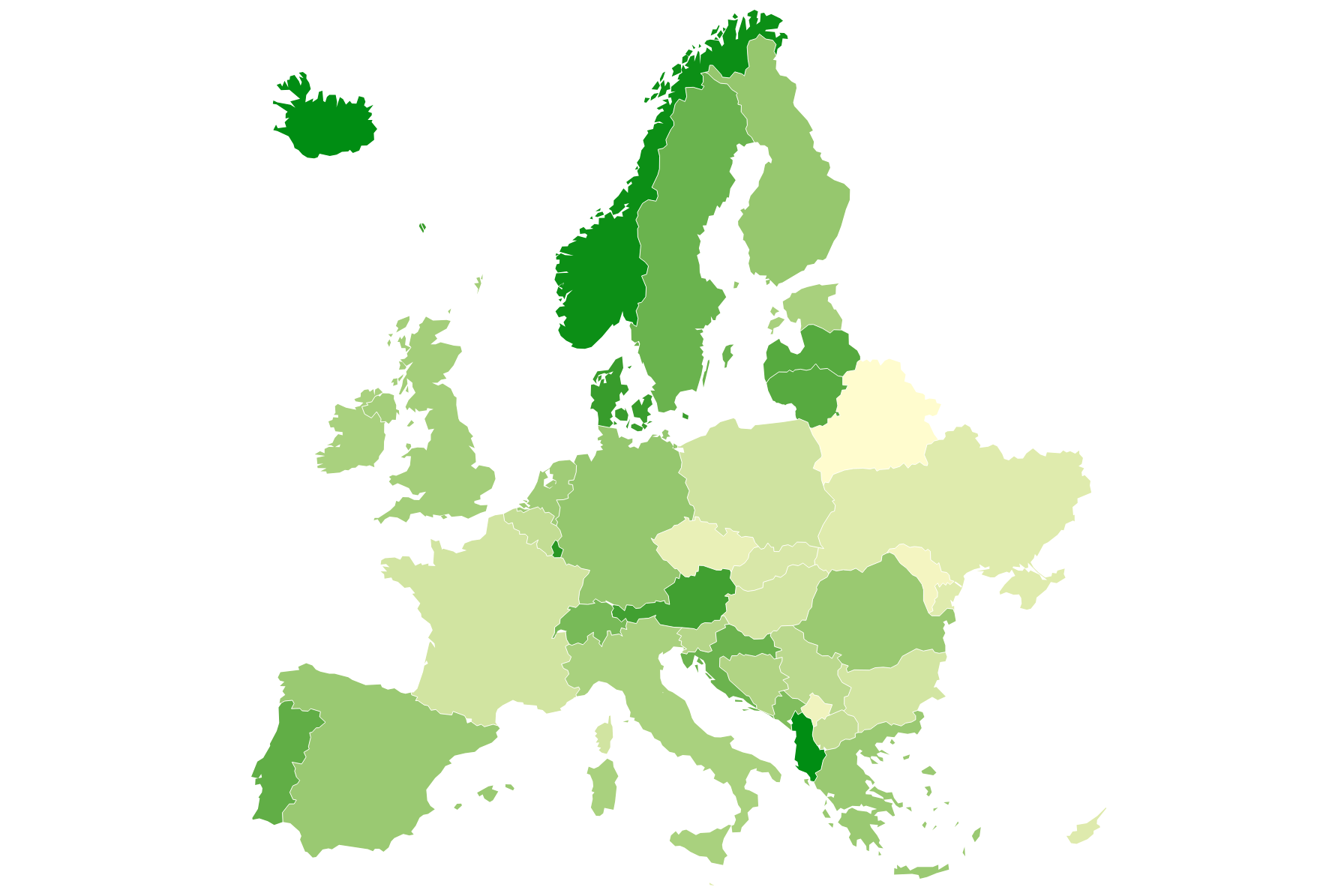Mapped: The greenest countries in Europe
Only one European country generates 100 per cent of its electricity from renewable energy sources, writes Anthony Cuthbertson. But others are catching up


This October will be the first month in 142 years that the UK has not generated any electricity from coal.
The closing of the Ratcliffe-on-Soar Power Station in Nottinghamshire puts the UK ahead of all other major economies by becoming the first to phase out coal-fired power entirely. However, its reliance on natural gas means it still ranks fairly poorly against other European countries when it comes to green energy.
Just under half of the UK’s electricity came from renewable energy sources last year, according to the energy think tank Ember. Figures collated by Our World in Data, a non-profit project based at the University of Oxford, show that there are more than 20 countries in Europe that have a higher renewables share.
Earlier this year, wind and solar power overtook fossil fuel-generated power for the first time in Europe, with wind turbines and solar panels accounting for 30 per cent of the EU’s electricity in the first six months of 2024.
The figures fit with a 2023 forecast from Ember that the world is about to enter an era of fossil fuel decline due to the acceleration of renewable energy production.
Huge growth in renewables meant they generated a record 30 per cent of global electricity last year, according to Ember’s Global Electricity Review 2024 report.
“With record construction of solar and wind in 2023, a new era of falling fossil generation is imminent,” the report stated. “2023 was likely the pivot point, marking peak emissions in the power sector.”
In total, 69 countries generate more than 50 per cent of their electricity from renewable energy sources around the world.
Despite falling behind many of its European peers when it comes to renewables, the UK is projected to pass the 50 per cent mark in 2025.
It is also one of the fastest growing in the sector, with the government setting energy providers the target of generating all electricity from zero-carbon sources by 2035.
The National Grid notes that the aim is not for renewables to be the UK’s sole provider of energy, but to provide the main share in a clean energy mix that includes nuclear power.
There are currently seven countries around the world that rely on renewables for 100 per cent of their electricity: Albania, Bhutan, Central African Republic, Democratic Republic of Congo, Lesotho, Nepal and Paraguay.
As the only European country to rely on 100 per cent renewable energy, Albania was able to achieve the feat through the presence of major river systems and a substantial investment in hydropower.
The Mediterranean country has recently turned its focus to wind and solar power in order to diversify its energy mix.
Join our commenting forum
Join thought-provoking conversations, follow other Independent readers and see their replies
Comments
Bookmark popover
Removed from bookmarks